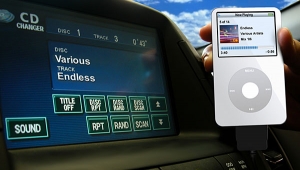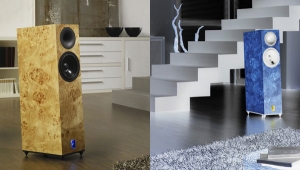| Columns Retired Columns & Blogs |
You can't really say that technical advancements will finish high-end audio! Just look at transistor amplifiers---they were supposed to (and did) cut down on distortion (a great technical advantage), but in the beginning they sounded awful. Even now, there are still plenty of tube amplifiers being developed. If transistors can't get rid of tubes, then DVDs and SACDs can't get rid of LPs. Although it will not be a rebirth. We'll inevitably see some monkeys turning higher-fidelity 2-channel into lower-fidelity 5-channel. If anything, it will cause a "birth" in surround-sound processors and, inevitably, home theater. RUN!


























